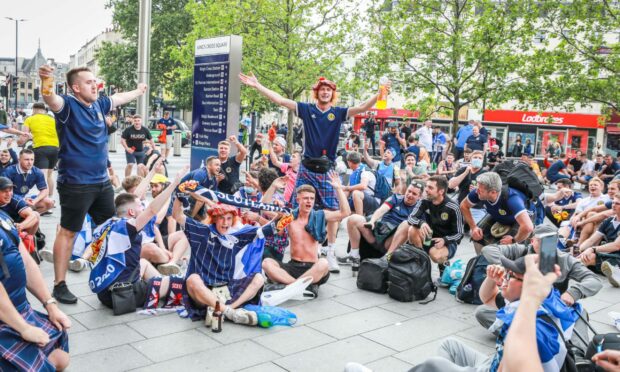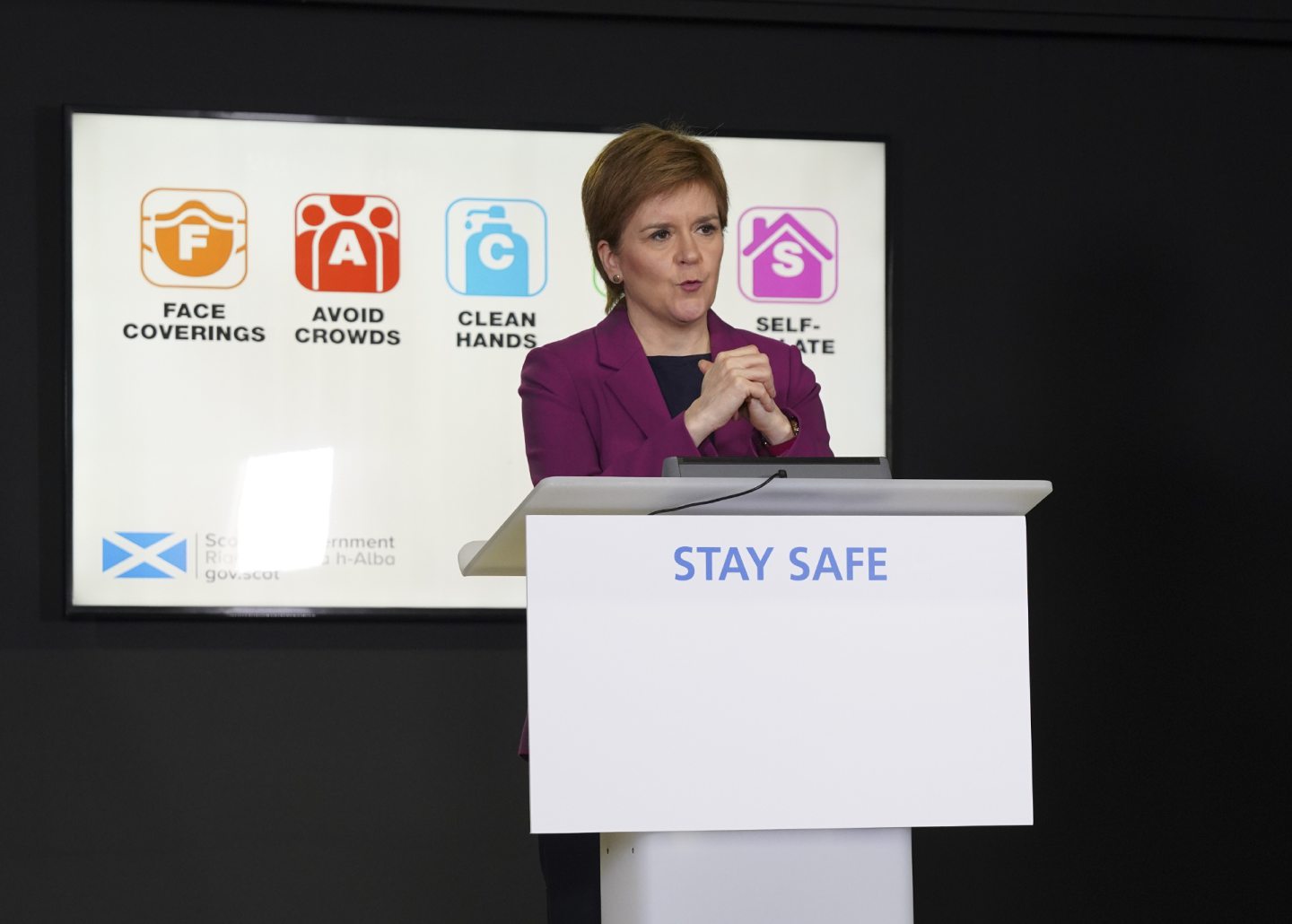Nearly 2,000 people with lab-confirmed Covid-19 attended at least one event marking Scotland’s Euros campaign while infectious with the disease.
A new report from Public Health Scotland (PHS) has revealed almost two-thirds of the cases have been linked with travel to London.
Large crowds formed in and around Wembley for Scotland’s tie with England on June 18.
Others gathered outside Hampden in Glasgow for the national side’s home fixtures against the Czech Republic and Croatia on June 14 and 22, respectively.
PHS says a total of 1,991 Scottish residents who tested positive for Covid between June 11-28 attended at least one or more Euro 2020-related events while in their infectious period.
This included the matches themselves, the Fanzone in Glasgow, pubs and house parties.
Generally, people have a two-to-three day window where they can spread the disease before they begin to feel any symptoms, and up to 10 days after.
As a result, health chiefs say they may have “unknowingly” transmitted the coronavirus to others in the process.
Two-thirds travelled to London
Between June 11-28, contact tracers, working as part of the Test & Protect system, had a total of 32,539 positive Covid cases reported to them.
Of these, 1,294 had travelled to London for a Euro 2020-related event, including 397 people who attended the June 18 Scotland-England match at Wembley.
Additionally, nearly three-quarters of the 1,991 cases involved people between 20 and 39 years old, while 90% were male.
Of all the “tags” added to each case, visits to hospitality – including pubs – account for 34%.
The PHS report said a “relatively small” number of cases were linked to other events, with 55 at the Glasgow Fanzone, 38 at the Croatia match and 37 at the Czech Republic fixture.
Spike on June 21
A sharp increase in Covid cases linked to Euro 2020 can be seen in the days after the June 18 clash in London.
Almost 250 cases were logged on June 20 and, the day after, this more than doubled to 563.
Hundreds more cases were logged in the three days following.
Last week NHS Grampian public health consultant Derek Cox confirmed cases linked to the Wembley match had been identified quickly.
But he warned more were likely to be found, with the weekend’s British & Irish Lions Test match in Edinburgh also causing concern.
“In Edinburgh, on Monday, they had 600 new cases,” he said.
“Glasgow and Edinburgh are both still reasonable hot spots for Covid, yet we will have and have had people from Aberdeen travelling there for matches.
“If I was given a free ticket to a sports game, I wouldn’t go.”
Warning was ‘explicit’
Yesterday First Minister Nicola Sturgeon denied taking a “softly, softly” approach to dissuading people from travelling to the football.
Scotland was allocated 2,600 tickets for the match at Wembley, out of a 25,000 capacity crowd, but many more headed south for the game.
Ms Sturgeon said: “We were very explicit in saying to fans who didn’t have tickets for Wembley not to travel.
“We can’t physically stop every person travelling, and significant numbers of people did travel.
“I think there is an association between that and some of the cases we’ve seen in recent days.”
She added: “Almost literally every day for 16 months I’ve asked people to do difficult things and forego things they desperately want to do.
“Unfortunately, we’re still doing that.
“People have, by and large, responded magnificently and we need to ask people to continue to do that for a little while longer.”

